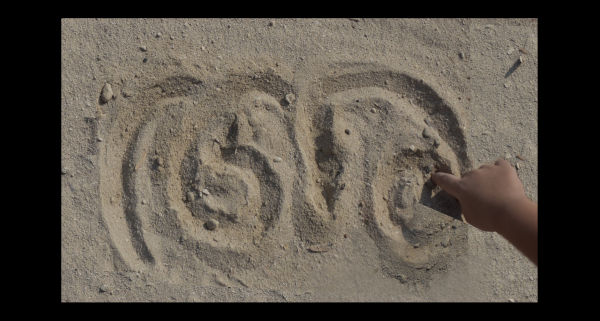അറിവ് അവകാശം. വിതരണം സ്വതന്ത്രം.
താളിളക്കം ഒരു മലയാളം വെബ് സൈറ്റാണ്. സൈബറിടത്തിൽ മലയാള സാഹിത്യം വളർന്നു വികസിക്കേണ്ടതുണ്ട് എന്ന തിരിച്ചറിവിൽനിന്നാണ് താളിളക്കം പ്രവർത്തിച്ചു തുടങ്ങുന്നത്. മലയാള ഭാഷാദ്ധ്യാപകർക്കും വിദ്യാർത്ഥികൾക്കും ആസ്വാദകർക്കും വേണ്ട വിഭവങ്ങളുടെ ശേഖരം. മലയാളഭാഷയുടേയും സാഹിത്യത്തിന്റേയും റിസോഴ്സ് ശേഖരം.
മലയാളഭാഷയുടേയും സാഹിത്യത്തിന്റേയും റിസോഴ്സ് ശേഖരം. നിരന്തരമായ പുതുക്കലിനൊപ്പം യൂസർ ഫ്രണ്ട്ലിയാക്കാനുള്ള പരീക്ഷണങ്ങളും താളിളക്കത്തിനെ ജീവസ്സുള്ളതാക്കാൻ സഹായിക്കുന്നു. അറിവ് നേടുകയെന്നത് ഓരോ വ്യക്തിയുടേയും അവകാശമാണെന്നും അറിവിൻ വിതരണം ഏവർക്കും സ്വതന്ത്രമായിരിക്കണമെന്നും താളിളക്കം ആഗ്രഹിക്കുന്നു.
അന്വേഷകരുടെ ആവശ്യമാണ് താളിളക്കത്തിന്റെ ഊർജ്ജം. അബദ്ധപ്പഞ്ചാംഗങ്ങളെ ചൂണ്ടിക്കാട്ടലാണ് താളിളക്കശുദ്ധീകരണ വഴി. അതുകൊണ്ട് വായനക്കാരിൽനിന്നും അന്വേഷകരിൽനിന്നും താളിളക്കം ഇവ ആഗ്രഹിക്കുന്നു.
മലയാളം മിഷനും വിക്കിപ്പീഡിയയും സായാഹ്നയും സ്വതന്ത്ര മലയാളം കമ്പ്യൂട്ടിങ്ങും ഗ്രന്ഥപ്പുരയും മലയാളത്തിനായി സൈബർ ലോകത്ത് നടത്തുന്ന സന്നദ്ധപ്രവർത്തനങ്ങളെ ഓരോ മലയാളിക്കുമൊപ്പം താളിളക്കവും നമിക്കുന്നു. നമുക്കഭിമാനിക്കാം; ഇത്തരം സേവനതല്പരരൊരുക്കിയ വഴികൾ മലയാളത്തിന് ലഭ്യമായതിന്.
താളിളക്കത്തിന് ചെയ്യുവാനായി ഒത്തിരി ജോലികളുണ്ട്. അവയോരോന്നും തുടർ പ്രവർത്തനവുമാണ്. കടമയാണെന്ന പൂർണ്ണബോധ്യത്തോടെ താളിളക്കം അത്തരം വിഭവങ്ങൾ പുറത്തുകൊണ്ടുവരാൻ യത്നിക്കും. ഇന്നുള്ളതും ഇനി വരാനിരിക്കുന്നതുമായ മുഴുവന് ഭാഷാധ്യാപർക്കും ഭാഷാവിദ്യാർത്ഥികള്ക്കും ഭാഷാകുതുകികള്ക്കും വേണ്ടി. കാരണം മലയാളം പുതുരൂപഭാവങ്ങളിലൂടെ ചരിക്കേണ്ടത് അവരോരുത്തരും വഴിയാണ്.
സ്നേഹവിശ്വാസത്തോടെ,
നിങ്ങളിലൊരാളായ താളിളക്കം.

ഫീച്ചേര്ഡ് പേജുകൾ
മലയാള സാഹിത്യ സമയരേഖ
സംഘകാലം മുതല് ഇന്നു വരെയുള്ള സാഹിത്യകാരരും കൃതികളും ഒന്നാംഘട്ടം
സാഹിത്യഭൂമിക
ഉള്ളൂരിന്റെ സാഹിത്യചരിത്രത്തില് പരാമര്ശിച്ചവരെ മാപ്പില് അടയാളപ്പെടുത്തുന്നു.
പാത്രാവലി
കഥാപാത്രഡയറക്ടറി നോവല് പ്രധാന കഥാപാത്രക്കുറിപ്പുകള്സമ്പാദകർ: സര്ഗ്ഗവേദി ബാലുശ്ശേരി
മലയാളം ഡിജിറ്റൈസേഷന് ശ്രീകേരളവര്മ്മ കോളേജ് തൃശൂര്
അഞ്ച് തുള്ളലുകള് സ്യമന്തകം, സത്യാസ്വയംവരം, രാമാനുചരിതം, ബാണയുദ്ധം, സന്താനഗോപാലം
മലയാളം ഡിജിറ്റൈസേഷന് പിഎംജിസി ചാലക്കുടി
ആറ് തുള്ളലുകള് ഐരാവതപൂജ, ഘോഷയാത്ര, ഹിഡിംബവധം, ബകവധം, കൃമ്മീരവധം, പാത്രചരിതം
മലയാളം ഡിജിറ്റൈസേഷന് കെകെടിഎംജിസി കൊടുങ്ങല്ലൂര്
രണ്ട് നാടകങ്ങള് കല്യാണി, സദാരാമ
















